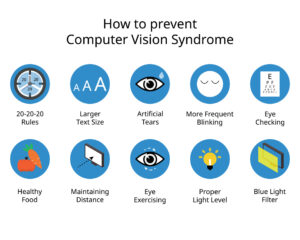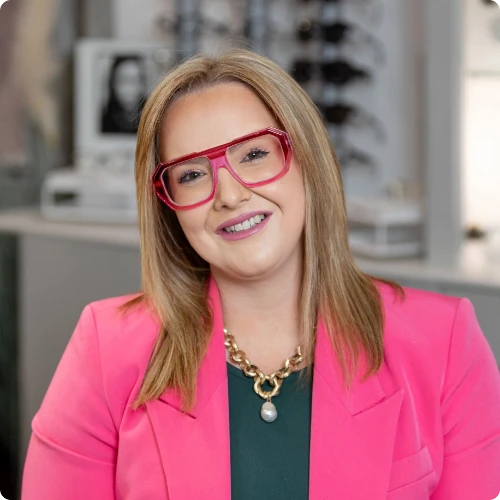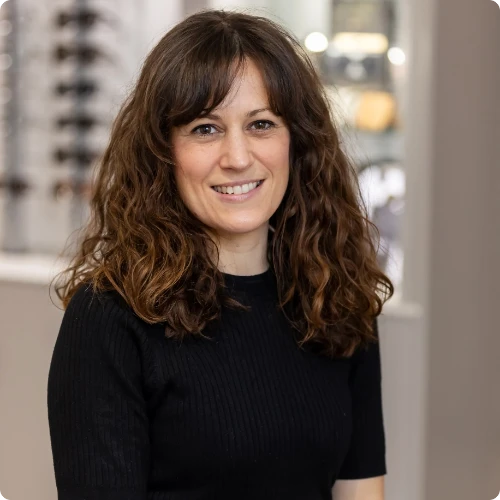The good news is that many vision problems are treatable if caught early. However, if vision loss starts and is left uninvestigated, it may be irreversible, so it is important that you have regular eye examinations.
Some vision changes can be expected with age. Have you noticed a shift in how you perceive colours or how your eyes focus? You may need more light to read or drive. If you have a family history of eye problems or health conditions, such as diabetes, Graves’ disease or high blood pressure you could be more at risk.

Eye Examinations to Prevent Vision Loss and Maintain Eye Health
At CG Optical we offer a comprehensive eye exam which helps us to diagnose conditions early.
Your eye test will include tests to check:
- Eye muscle function
- Peripheral vision, or how much you can see on the side while looking forward
- Pressure in your eyes
- Response to light
- Vision clarity
Even if you are young and healthy, a regular comprehensive eye exam is always advised.
It’s true that different ages and different people with different refractive errors like astigmatism, far-sightedness or near-sightedness and depending on lifestyle, will have different requirements when it comes to what is the ideal pair of glasses.

Computer Vision Syndrome
For example, if you do a lot of computer work you should consider glasses specifically for computer work to safeguard your vision during long days working in front of a screen. Also remember the “20-20-20” rule. When you’re on a computer, take a break every 20 minutes, for 20 seconds, by looking into the distance at an object that’s 20 feet away or further. This will help avoid stressing your eyes, which can lead to dryness, headaches and eye strain and blurry vision from the weakening of muscles in the eye as the day progresses.
Glasses specifically for working on a computer are ideally suited to that intermediate arm’s length distance that desktop computers usually sit at. The glasses will keep that distance in focus and will alleviate a lot of that burden on the eye muscles to keep things in focus.
The most common type of eye problem is refractive errors. These conditions impact how light focuses in your eyes and includes:
Astigmatism – occurs when either the front surface of the eye (cornea) or the lens inside the eye has mismatched curves. Instead of having one curve like a round ball, the surface is egg-shaped. This causes blurred vision at all distances.
Farsightedness – is a refractive error that makes nearby objects look blurry.
Near sightedness – is a refractive error that makes far-away objects look blurry.
Presbyopia – is a refractive error that makes it hard for middle-aged and older adults to see things up close. It happens because the lens (an inner part of the eye that helps the eye focus) stops focusing light correctly on the retina (a light-sensitive layer of tissue at the back of the eye).
Most refractive errors develop in childhood and are caused by problems with the shape of the eye. The exception is presbyopia, caused by age-related loss of flexibility and strength. As we age our eye muscles that focus up close get weakened. Usually, that starts around age 40 and progresses to age 65 and beyond. Age may also be a factor in other eye conditions that can cause severe damage but are not a natural part of aging. These conditions can often be treated or slowed and include:
Age-related macular degeneration, a condition that causes cells in the eye to break down. Cataract, a clouding of the eye lens, diabetic retinopathy, a problem with blood vessels in the eyes and Glaucoma, a condition that damages the optic nerve. Managing chronic conditions, such as diabetes, can also improve your eye health. The earlier you take steps to manage your health, the better.
Natural Ways to Help Improve Vision and Eye Health
You can take steps to help improve eye health and prevent vision loss on your own:
- Stop smoking.
- Eat a healthy, balanced diet with dark, leafy greens and fish high in omega-3 fatty acids.
- Exercise regularly.
- Use protective eyewear during activities that may be dangerous to your eyes, such as gardening, sports or DIY.
- Wash your hands before handling contact lenses.
- Wear sunglasses with 99% or 100% UVA and UVB protection.
- A comprehensive eye exam is an excellent way for everyone to care for eye health. But it is essential if you’re noticing changes or are at risk from eye conditions due to family history or a health condition.







